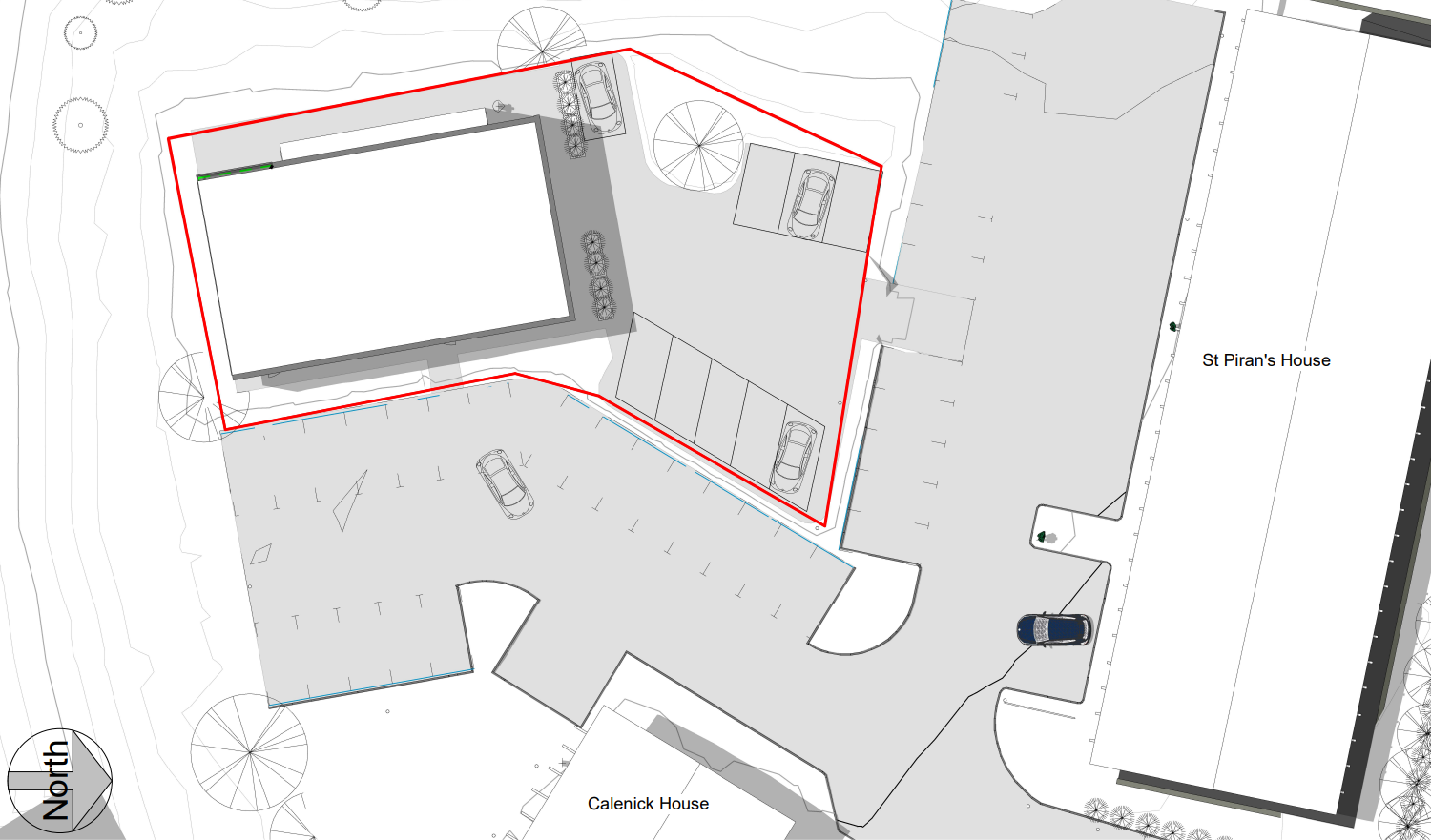What is Planning Permission?
Planning permission is a legal requirement in the United Kingdom that allows you to build on land or change the use of land or buildings. It is granted by local planning authorities (LPAs) in accordance with the development plan for the area. The development plan is a document that sets out the LPA's policies for future development in the area.
A site plan for a planning application submitted by Desmonde Associates on behalf of our clients for s site in Truro
There are a number of different types of planning permission, for example:
Full planning permission is required for most major developments, such as building a new house or extending an existing house.
Outline planning permission is granted for less detailed plans, such as plans for a new development on a large piece of land. This type of permission allows you to start work on the development, but you will need to apply for full planning permission before you can complete it.
Permission in principle is a new type of planning permission that was introduced in 2019. It is granted for smaller developments that are considered to be in the public interest. This type of permission allows you to start work on the development without having to go through the full planning permission process.
The application process can be complex, so it is important to seek professional advice if you are unsure about what is required.
An elevation view for a planning application for an office building in Truro made by Desmonde Associates on behalf of our client
The principal policies and legislation governing planning applications are as follows:
The NPPF sets out the national planning policy for England and Wales. It sets out the government's vision for the future of the country and the planning principles that should be applied to development.
The local development plan is a document that sets out the LPA's vision for the future of their area. It includes policies on housing, employment, transport, and the environment.
A neighbourhood development plan is the most local form of policy which often is produced by your local parish council and which they can reference when making comment on a planning application.
If you want to build on land or change the use of land or buildings, you will need to apply for planning permission. You can find out more about the planning process on the Planning Portal website.
Here are some examples of what might require planning permission:
Building a new house
Extending an existing house
Changing the use of a building from residential to commercial
Developing land for a new business
Demolition of a building
The Town and Country Planning Act 1947 is the main piece of legislation that governs planning permission in the UK. The Act sets out the powers of LPAs to grant planning permission and the criteria that they must consider when making decisions on planning applications.
The Planning (Listed Buildings and Conservation Areas) Act 1990 is another important piece of legislation that affects planning permission in the UK. The Act protects listed buildings and conservation areas from development that could harm their character or appearance.
If you are considering making a planning application please get in contact with us and we would be happy to help.


